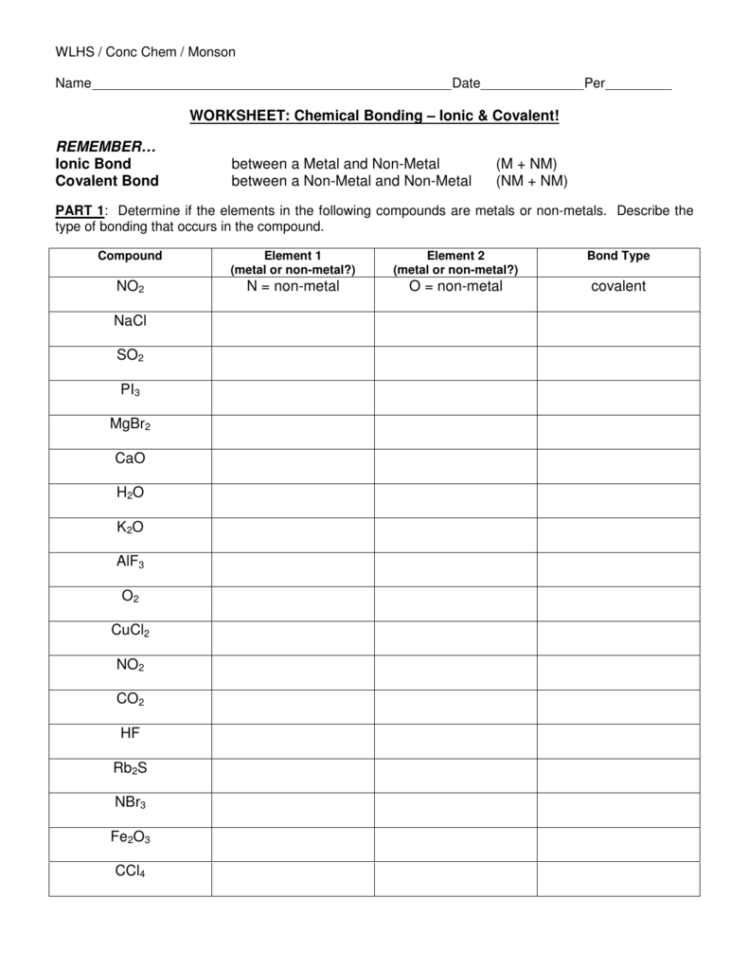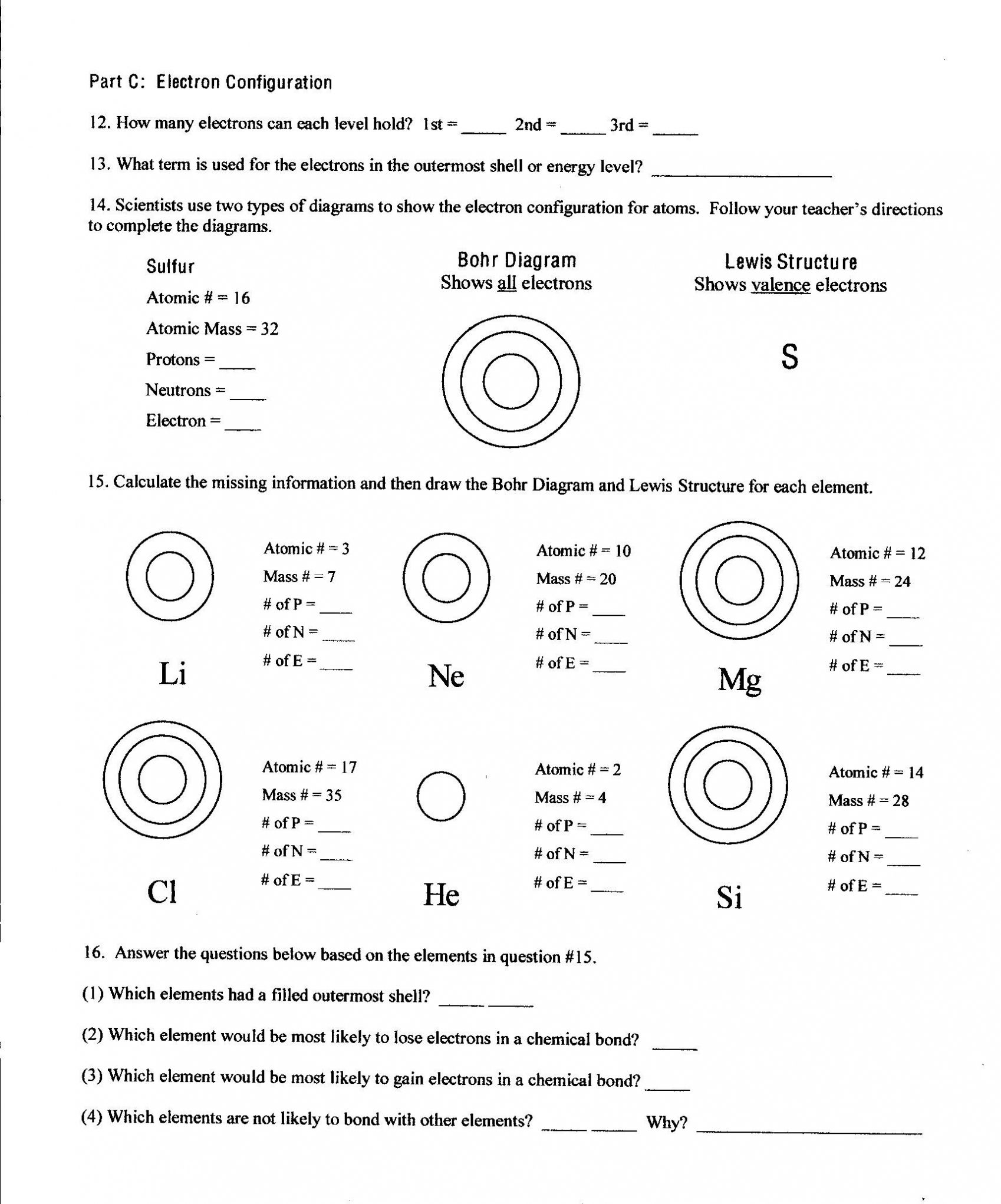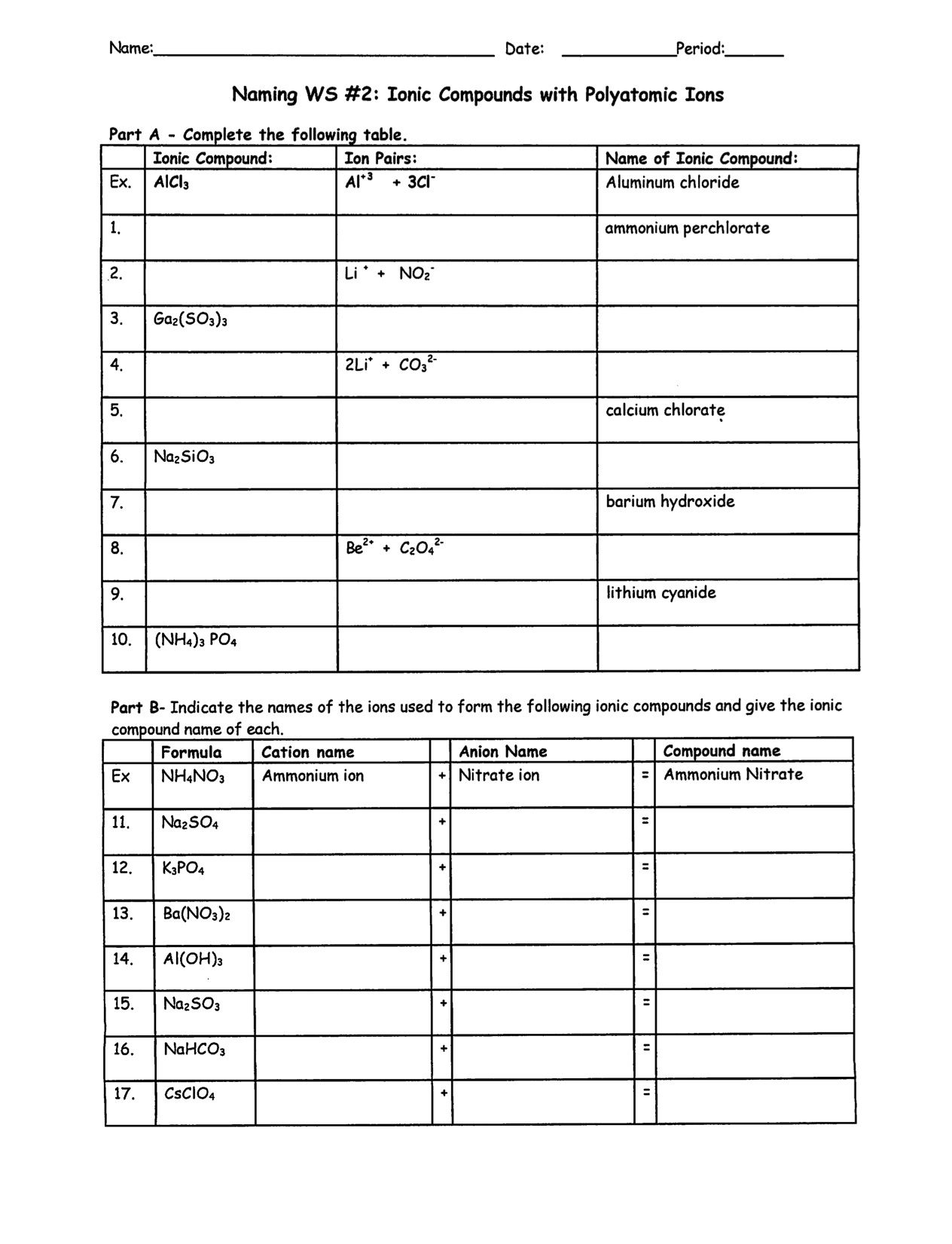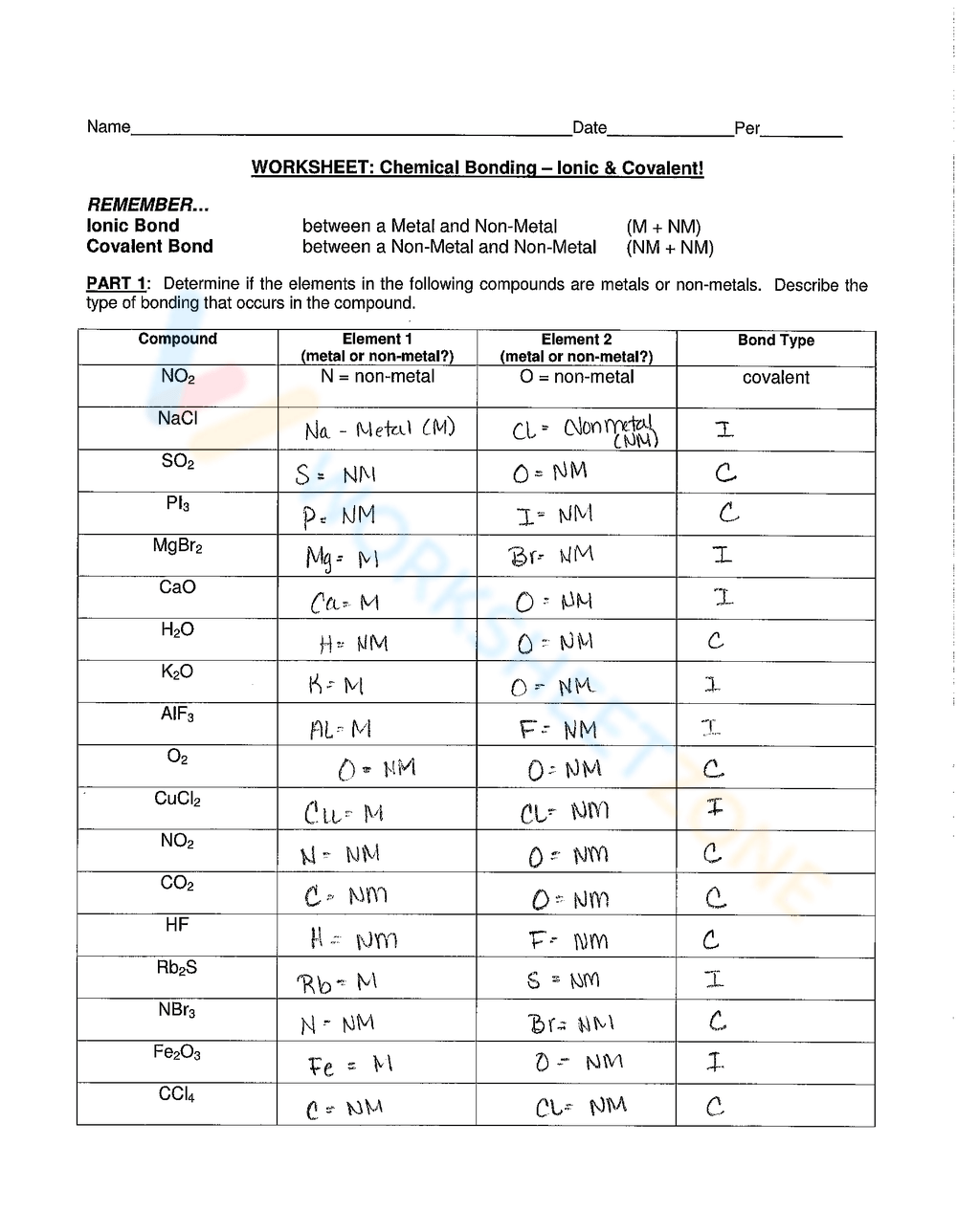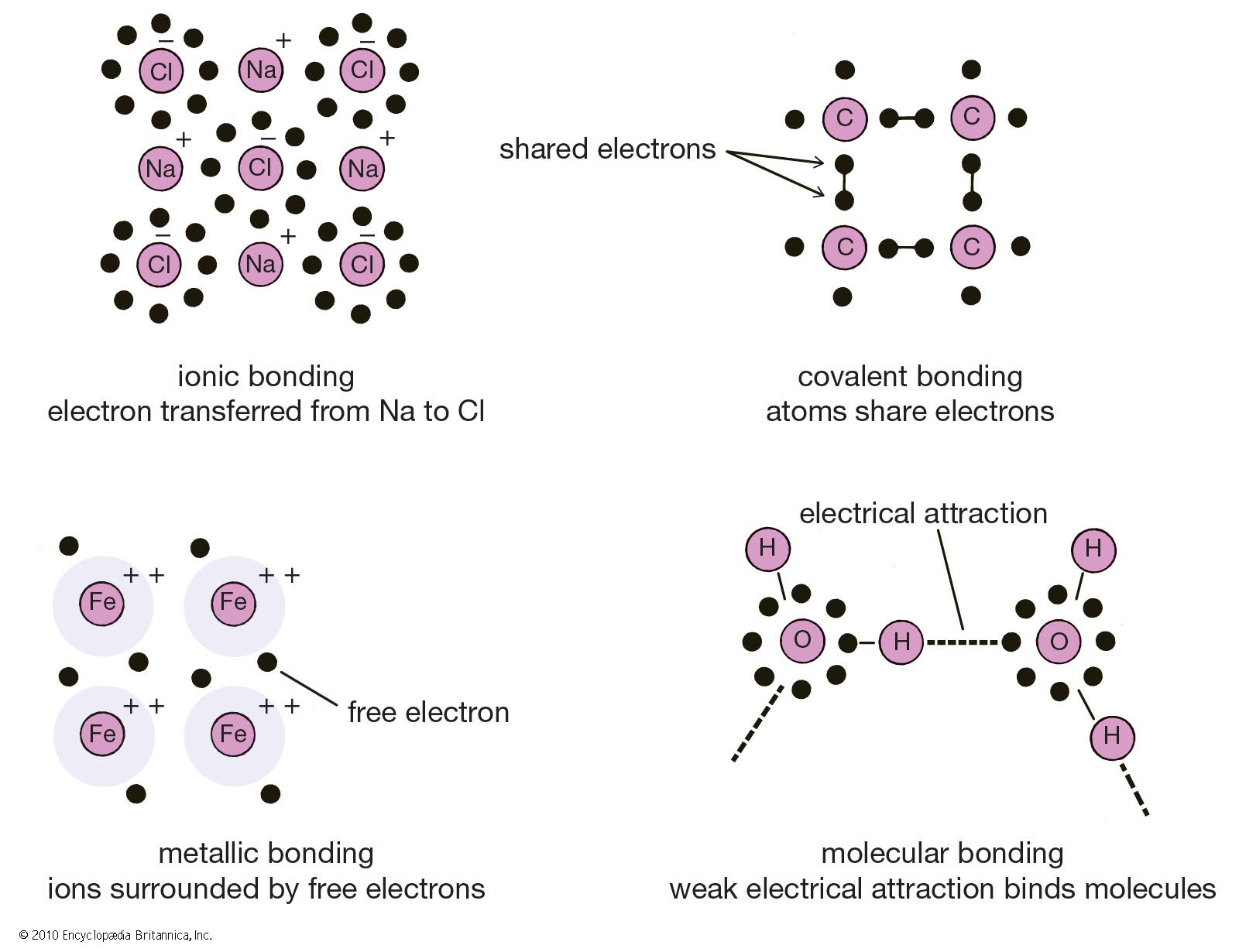Worksheet Chemical Bonding Ionic Covalent - Ionic and covalent bonding model 1: Model 1 substances are called ionic compounds and model 2 substances are called covalent molecules. Be able to define covalent bonds, polar covalent bonds, ionic bonds, electronegativity, dipoles, formal charge,. Draw the bond structure using chemical symbols and lines. Use one line for each pair of electrons that is shared. Write a simple rule that will allow.
Ionic and covalent bonding model 1: Be able to define covalent bonds, polar covalent bonds, ionic bonds, electronegativity, dipoles, formal charge,. Write a simple rule that will allow. Draw the bond structure using chemical symbols and lines. Use one line for each pair of electrons that is shared. Model 1 substances are called ionic compounds and model 2 substances are called covalent molecules.
Be able to define covalent bonds, polar covalent bonds, ionic bonds, electronegativity, dipoles, formal charge,. Ionic and covalent bonding model 1: Use one line for each pair of electrons that is shared. Draw the bond structure using chemical symbols and lines. Model 1 substances are called ionic compounds and model 2 substances are called covalent molecules. Write a simple rule that will allow.
Covalent Bonding Practice Worksheet With Answers Printable Online
Model 1 substances are called ionic compounds and model 2 substances are called covalent molecules. Write a simple rule that will allow. Ionic and covalent bonding model 1: Be able to define covalent bonds, polar covalent bonds, ionic bonds, electronegativity, dipoles, formal charge,. Use one line for each pair of electrons that is shared.
WORKSHEET Chemical Bonding Ionic & Covalent! Ionic Bond
Write a simple rule that will allow. Use one line for each pair of electrons that is shared. Model 1 substances are called ionic compounds and model 2 substances are called covalent molecules. Be able to define covalent bonds, polar covalent bonds, ionic bonds, electronegativity, dipoles, formal charge,. Draw the bond structure using chemical symbols and lines.
Chemical Bonds Ionic & Covalent Identification Worksheet Covalent
Draw the bond structure using chemical symbols and lines. Use one line for each pair of electrons that is shared. Model 1 substances are called ionic compounds and model 2 substances are called covalent molecules. Be able to define covalent bonds, polar covalent bonds, ionic bonds, electronegativity, dipoles, formal charge,. Write a simple rule that will allow.
Worksheet Chemical Bonding Ionic And Covalent Answers Part 2
Model 1 substances are called ionic compounds and model 2 substances are called covalent molecules. Draw the bond structure using chemical symbols and lines. Use one line for each pair of electrons that is shared. Be able to define covalent bonds, polar covalent bonds, ionic bonds, electronegativity, dipoles, formal charge,. Write a simple rule that will allow.
Worksheet Chemical Bonding Ionic And Covalent
Use one line for each pair of electrons that is shared. Ionic and covalent bonding model 1: Write a simple rule that will allow. Be able to define covalent bonds, polar covalent bonds, ionic bonds, electronegativity, dipoles, formal charge,. Draw the bond structure using chemical symbols and lines.
Worksheets Chemical Bonding Ionic & Covalent
Draw the bond structure using chemical symbols and lines. Be able to define covalent bonds, polar covalent bonds, ionic bonds, electronegativity, dipoles, formal charge,. Model 1 substances are called ionic compounds and model 2 substances are called covalent molecules. Ionic and covalent bonding model 1: Use one line for each pair of electrons that is shared.
Worksheet Chemical Bonding Ionic And Covalent Answers Part 2 —
Model 1 substances are called ionic compounds and model 2 substances are called covalent molecules. Draw the bond structure using chemical symbols and lines. Be able to define covalent bonds, polar covalent bonds, ionic bonds, electronegativity, dipoles, formal charge,. Ionic and covalent bonding model 1: Use one line for each pair of electrons that is shared.
10 Free Chemical Bonding Ionic and Covalent Worksheets Worksheets Library
Write a simple rule that will allow. Use one line for each pair of electrons that is shared. Ionic and covalent bonding model 1: Draw the bond structure using chemical symbols and lines. Model 1 substances are called ionic compounds and model 2 substances are called covalent molecules.
Chemical Bonding Ionic And Covalent Compounds Britannica
Be able to define covalent bonds, polar covalent bonds, ionic bonds, electronegativity, dipoles, formal charge,. Ionic and covalent bonding model 1: Draw the bond structure using chemical symbols and lines. Write a simple rule that will allow. Model 1 substances are called ionic compounds and model 2 substances are called covalent molecules.
Ionic And Covalent Bonding Worksheets
Use one line for each pair of electrons that is shared. Draw the bond structure using chemical symbols and lines. Be able to define covalent bonds, polar covalent bonds, ionic bonds, electronegativity, dipoles, formal charge,. Model 1 substances are called ionic compounds and model 2 substances are called covalent molecules. Ionic and covalent bonding model 1:
Ionic And Covalent Bonding Model 1:
Write a simple rule that will allow. Draw the bond structure using chemical symbols and lines. Be able to define covalent bonds, polar covalent bonds, ionic bonds, electronegativity, dipoles, formal charge,. Model 1 substances are called ionic compounds and model 2 substances are called covalent molecules.




